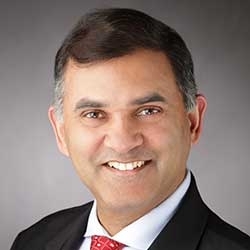Erik Goldman, Holistic Primary Care12.03.13
“I was informed by the local insurance CEO that they will not pay me to get people well, only to give them a drug and get them out of my office in 5 minutes, and in the past 200 claims they may have paid 20. What is happening is criminal and no one is paying attention and no one seems to care. I have been in medicine all my life and licensed for 40 years and I am outraged. I am an excellent physician but the insurance took my business away! Where is our recourse?”
This quote is from a seasoned osteopathic primary care physician answering a survey question about the biggest challenges doctors face in their practices today. It sums up just about everything that’s wrong with American medicine today.
Healthcare has become a game of matching drugs to symptom patterns as quickly and “cost-efficiently” as possible, and then ensuring that people remain “compliant”—that is, they continue to take their meds, the keystone of most “disease management” protocols.
While it’s true that there’s been considerable progress in the movement of holistic approaches from the fringes into the mainstream, U.S. healthcare is still by and large all about the meds. That trend is only going to intensify in the coming years.
Andrew Weil, MD, founder of the University of Arizona’s hugely influential Fellowship in Integrative Medicine, and one of the patriarchs of the integrative medicine movement, described the situation very well at the Bravewell Collaborative’s annual awards event last month.
Bravewell (www.bravewell.org), a philanthropic group founded by several wealthy families, has been instrumental in bringing a more holistic vision to conventional care settings over the last decade. The group, which will sunset itself over the next year, has also provided significant career development support for many thought-leaders, including Dr. Weil.
Prevention Doesn’t Pay
Though Dr. Weil acknowledged and applauded Bravewell’s many successes, he also voiced extreme frustration at the slow pace of progress.
“I’ve been working for this transformation for over 40 years. As optimistic as I am in the long term, I think it’s going to be a long, hard road,” predicted the Bearded One. “Why can’t we do a better job of prevention? Simple! It doesn’t pay! As dysfunctional as American healthcare is, it is generating rivers of money that are flowing to a few pockets. Those vested interests want nothing to change, and their lobbying power is enormous. You cannot get elected to public office without making deals with those vested interests.”
Those entrenched interests include a food and agriculture establishment that floods American life with unhealthy food options at artificially low prices—thanks to federal subsidies for things like corn syrup. “The fact is, people eat what’s cheapest and most available, and we’ve made the crappy stuff the cheapest and most available,” Dr. Weil told the Bravewell assembly.
At the other end of the disease process is the drug industry, which is all too happy to take on the task of providing “solutions” for the problem of chronic diseases like diabetes, cardiovascular disease, obesity, behavioral disorders and a host of other conditions largely caused by lifestyle factors.
The health insurance industry, though it’s wings are being clipped by the Affordable Care Act—arguably the only really good outcome of ObamaCare—has been equally zealous in its pursuit of profit through mediating the transactions through which people receive their “meds.”
For much of the last 50 years, there’s been virtually no incentive for preventive medicine. The insurance version of “quality care” usually amounts to protocols aimed at matching people with the appropriate offerings from Big Pharma as efficiently as possible.
The end result is the sort of frustration voiced by the doctor at the opening of this article.
Questioning the ‘Evidence’
Dr. Weil challenged the “complicity of the ‘evidence-based medicine’ community in this mess.”
All-too-often, evidence based medicine (EBM) means pharma-based medicine, he said. The studies cited by advocates of EBM are often funded by drug companies, and almost always follow pharmaceutical logic in their study design, even if the subject under study differs significantly from the basic pharma “one problem, one molecule, one predictable outcome” model.
According to Dr. Weil, some in the medical community are taking the EBM idea, with its insistence on randomized controlled trials, to the point of “religious fundamentalism.”
“I see a big conflict between the EBM movement and the integrative medicine movement. Yes we need good science in integrative medicine, but not science that’s so skewed to the interests of the drug industry.”
It would be one thing if the evidence being produced by the biomedical research establishment was reliable and replicable. Unfortunately, it is not.
An eye-opening cover story in the October 19th edition of The Economist blows to bits many of our most “sacred” assumptions about the self-corrective process of science, and its ability to give us a reasonably accurate picture of reality.
Titled “How Science Goes Wrong,” the article noted that researchers at Amgen, one of the world’s leading pharma/biotech companies in the oncology field, were able to reproduce only six out of 53 so-called “landmark” studies in cancer biology—that’s barely over 10%! And that’s after working closely with the researchers on the original studies to ensure that no methodological mistakes were introduced into the repeat experiments.
Investigators at Bayer, the global pharma giant, were only able to reproduce the results of 25% of 67 “seminal” drug studies. The article goes on to cite an official at the National Institutes of Health, who estimated that at least 75% of all studies published in the biomedical literature are probably not replicable.
Reproducibility is a cornerstone of the scientific method: if data from an experiment truly reflects reality, then multiple research groups following the same experimental protocol should obtain the same—or at least similar—outcomes.
The Economist’s authors cited numerous reasons for the breakdown of good science: sloppy experiments, shoddy peer review, incessant academic pressure to publish newsworthy data, industrial interests intent on obtaining commercially useful study results and a general lack of interest in replicating—and thereby verifying—previous studies.
Statin Guidelines Cause Heartburn
The ongoing process of science, such as it is, results in conflicting messages to physicians and utter confusion for the general public.
Witness the recent change in statin prescription guidelines forwarded jointly by the American Heart Association and the American College of Cardiology.
For decades these guardians of conventional wisdom about heart disease pushed physicians to adhere to rigorous “evidence-based” standards focused on measuring lipid profiles, defining treatment targets for LDL cholesterol, and then focusing statin prescriptions to reach these goals.
Now, the new guidelines insist that doctors no longer need to measure LDL or other lipids, and that pretty much anybody who looks like they’re at risk for cardiovascular disease should automatically get a statin prescription.
Wow, so all those lipid tests we’ve been undergoing for the last 20 years are now unnecessary? How convenient, given that under healthcare reform, all the payers—whether federal or private sector—are looking for ways to cut costs.
Think of the money saved if we just cut out all those millions of tests and just cut right to the statins! They’re safe, after all … so long as you don’t bother to take seriously the clinicians and their patients who report “anecdotally” that statins cause all sorts of musculoskeletal and cognitive side effects, and you ignore the data from large scale studies suggesting an increased risk of diabetes and congestive heart failure in people on long-term statin therapy.
I have no way of knowing whether the authors of the new statin guidelines were in any way influenced by the rollout of healthcare reform, but the timing is certainly curious.
Right out of the gate, the guidelines hit a major snag when Drs. Paul Ridker and Nancy Cook—two well-respected cardiology researchers—reported that the online risk assessment calculator that clinicians are supposed to use to determine who needs statin therapy, over-estimates risk of heart attacks by as much as 150%!
The Ridker-Cook report sent shock waves through the cardiology community, and prompted a series of “behind-closed-doors” damage control sessions at the recent annual meeting of the American Heart Association in Dallas, TX.
In the New York Times’ coverage of the debacle, Dr. Steven Nissen, chief of cardiology at the Cleveland Clinic, and a reliable voice of reason on scientific and public policy matters, said that he used the calculator to assess the risk of a healthy 60-year-old, non-smoking, non-diabetic black man with no obvious heart risk factors—i.e., total cholesterol of 150, HDL (good cholesterol) of 45, blood pressure of 125 mmHg.
The calculator came to the conclusion that the man should be on a statin. “Something is terribly wrong,” Dr. Nissen told the Times’ Gina Kolata. If doctors follow the calculator, virtually every African American man over 65 would be put on a statin without question.
That, I’m afraid, is the state of medical science and healthcare policy in the U.S. at this stage of the game. Disease prevention is all about getting as many people on meds as possible—and hoping nobody gets hurt enough to trigger a lawsuit.
Lest we in the natural products world grin and gloat, let’s keep in mind the quantity of bogus science and shoddy manufacturing that goes on in our sector. It’s true that our industry has micro-doses of research funding compared to Big Pharma. But that’s not a license to fudge the rules and falsify the findings. In the long run, corruption of the scientific enterprise hurts us all—no matter who’s doing the corrupting.
Erik Goldman is co-founder and editor of Holistic Primary Care: News for Health & Healing, a quarterly medical publication reaching about 60,000 physicians and other healthcare professionals nationwide. He is also co-producer, with Greg Stephens of Windrose Partners, of the Health Practitioner Marketing Forum, an executive level summit focused on challenges and opportunities in the health practitioner channel. The 2014 Forum will be held on April 2-4, 2014 at the Hotel Maya in Long Beach, CA. Visit www.HPMForum.com for more information.
This quote is from a seasoned osteopathic primary care physician answering a survey question about the biggest challenges doctors face in their practices today. It sums up just about everything that’s wrong with American medicine today.
Healthcare has become a game of matching drugs to symptom patterns as quickly and “cost-efficiently” as possible, and then ensuring that people remain “compliant”—that is, they continue to take their meds, the keystone of most “disease management” protocols.
While it’s true that there’s been considerable progress in the movement of holistic approaches from the fringes into the mainstream, U.S. healthcare is still by and large all about the meds. That trend is only going to intensify in the coming years.
Andrew Weil, MD, founder of the University of Arizona’s hugely influential Fellowship in Integrative Medicine, and one of the patriarchs of the integrative medicine movement, described the situation very well at the Bravewell Collaborative’s annual awards event last month.
Bravewell (www.bravewell.org), a philanthropic group founded by several wealthy families, has been instrumental in bringing a more holistic vision to conventional care settings over the last decade. The group, which will sunset itself over the next year, has also provided significant career development support for many thought-leaders, including Dr. Weil.
Prevention Doesn’t Pay
Though Dr. Weil acknowledged and applauded Bravewell’s many successes, he also voiced extreme frustration at the slow pace of progress.
“I’ve been working for this transformation for over 40 years. As optimistic as I am in the long term, I think it’s going to be a long, hard road,” predicted the Bearded One. “Why can’t we do a better job of prevention? Simple! It doesn’t pay! As dysfunctional as American healthcare is, it is generating rivers of money that are flowing to a few pockets. Those vested interests want nothing to change, and their lobbying power is enormous. You cannot get elected to public office without making deals with those vested interests.”
Those entrenched interests include a food and agriculture establishment that floods American life with unhealthy food options at artificially low prices—thanks to federal subsidies for things like corn syrup. “The fact is, people eat what’s cheapest and most available, and we’ve made the crappy stuff the cheapest and most available,” Dr. Weil told the Bravewell assembly.
At the other end of the disease process is the drug industry, which is all too happy to take on the task of providing “solutions” for the problem of chronic diseases like diabetes, cardiovascular disease, obesity, behavioral disorders and a host of other conditions largely caused by lifestyle factors.
The health insurance industry, though it’s wings are being clipped by the Affordable Care Act—arguably the only really good outcome of ObamaCare—has been equally zealous in its pursuit of profit through mediating the transactions through which people receive their “meds.”
For much of the last 50 years, there’s been virtually no incentive for preventive medicine. The insurance version of “quality care” usually amounts to protocols aimed at matching people with the appropriate offerings from Big Pharma as efficiently as possible.
The end result is the sort of frustration voiced by the doctor at the opening of this article.
Questioning the ‘Evidence’
Dr. Weil challenged the “complicity of the ‘evidence-based medicine’ community in this mess.”
All-too-often, evidence based medicine (EBM) means pharma-based medicine, he said. The studies cited by advocates of EBM are often funded by drug companies, and almost always follow pharmaceutical logic in their study design, even if the subject under study differs significantly from the basic pharma “one problem, one molecule, one predictable outcome” model.
According to Dr. Weil, some in the medical community are taking the EBM idea, with its insistence on randomized controlled trials, to the point of “religious fundamentalism.”
“I see a big conflict between the EBM movement and the integrative medicine movement. Yes we need good science in integrative medicine, but not science that’s so skewed to the interests of the drug industry.”
It would be one thing if the evidence being produced by the biomedical research establishment was reliable and replicable. Unfortunately, it is not.
An eye-opening cover story in the October 19th edition of The Economist blows to bits many of our most “sacred” assumptions about the self-corrective process of science, and its ability to give us a reasonably accurate picture of reality.
Titled “How Science Goes Wrong,” the article noted that researchers at Amgen, one of the world’s leading pharma/biotech companies in the oncology field, were able to reproduce only six out of 53 so-called “landmark” studies in cancer biology—that’s barely over 10%! And that’s after working closely with the researchers on the original studies to ensure that no methodological mistakes were introduced into the repeat experiments.
Investigators at Bayer, the global pharma giant, were only able to reproduce the results of 25% of 67 “seminal” drug studies. The article goes on to cite an official at the National Institutes of Health, who estimated that at least 75% of all studies published in the biomedical literature are probably not replicable.
Reproducibility is a cornerstone of the scientific method: if data from an experiment truly reflects reality, then multiple research groups following the same experimental protocol should obtain the same—or at least similar—outcomes.
The Economist’s authors cited numerous reasons for the breakdown of good science: sloppy experiments, shoddy peer review, incessant academic pressure to publish newsworthy data, industrial interests intent on obtaining commercially useful study results and a general lack of interest in replicating—and thereby verifying—previous studies.
Statin Guidelines Cause Heartburn
The ongoing process of science, such as it is, results in conflicting messages to physicians and utter confusion for the general public.
Witness the recent change in statin prescription guidelines forwarded jointly by the American Heart Association and the American College of Cardiology.
For decades these guardians of conventional wisdom about heart disease pushed physicians to adhere to rigorous “evidence-based” standards focused on measuring lipid profiles, defining treatment targets for LDL cholesterol, and then focusing statin prescriptions to reach these goals.
Now, the new guidelines insist that doctors no longer need to measure LDL or other lipids, and that pretty much anybody who looks like they’re at risk for cardiovascular disease should automatically get a statin prescription.
Wow, so all those lipid tests we’ve been undergoing for the last 20 years are now unnecessary? How convenient, given that under healthcare reform, all the payers—whether federal or private sector—are looking for ways to cut costs.
Think of the money saved if we just cut out all those millions of tests and just cut right to the statins! They’re safe, after all … so long as you don’t bother to take seriously the clinicians and their patients who report “anecdotally” that statins cause all sorts of musculoskeletal and cognitive side effects, and you ignore the data from large scale studies suggesting an increased risk of diabetes and congestive heart failure in people on long-term statin therapy.
I have no way of knowing whether the authors of the new statin guidelines were in any way influenced by the rollout of healthcare reform, but the timing is certainly curious.
Right out of the gate, the guidelines hit a major snag when Drs. Paul Ridker and Nancy Cook—two well-respected cardiology researchers—reported that the online risk assessment calculator that clinicians are supposed to use to determine who needs statin therapy, over-estimates risk of heart attacks by as much as 150%!
The Ridker-Cook report sent shock waves through the cardiology community, and prompted a series of “behind-closed-doors” damage control sessions at the recent annual meeting of the American Heart Association in Dallas, TX.
In the New York Times’ coverage of the debacle, Dr. Steven Nissen, chief of cardiology at the Cleveland Clinic, and a reliable voice of reason on scientific and public policy matters, said that he used the calculator to assess the risk of a healthy 60-year-old, non-smoking, non-diabetic black man with no obvious heart risk factors—i.e., total cholesterol of 150, HDL (good cholesterol) of 45, blood pressure of 125 mmHg.
The calculator came to the conclusion that the man should be on a statin. “Something is terribly wrong,” Dr. Nissen told the Times’ Gina Kolata. If doctors follow the calculator, virtually every African American man over 65 would be put on a statin without question.
That, I’m afraid, is the state of medical science and healthcare policy in the U.S. at this stage of the game. Disease prevention is all about getting as many people on meds as possible—and hoping nobody gets hurt enough to trigger a lawsuit.
Lest we in the natural products world grin and gloat, let’s keep in mind the quantity of bogus science and shoddy manufacturing that goes on in our sector. It’s true that our industry has micro-doses of research funding compared to Big Pharma. But that’s not a license to fudge the rules and falsify the findings. In the long run, corruption of the scientific enterprise hurts us all—no matter who’s doing the corrupting.
Erik Goldman is co-founder and editor of Holistic Primary Care: News for Health & Healing, a quarterly medical publication reaching about 60,000 physicians and other healthcare professionals nationwide. He is also co-producer, with Greg Stephens of Windrose Partners, of the Health Practitioner Marketing Forum, an executive level summit focused on challenges and opportunities in the health practitioner channel. The 2014 Forum will be held on April 2-4, 2014 at the Hotel Maya in Long Beach, CA. Visit www.HPMForum.com for more information.
























